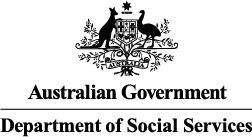Helping a social impact ‘start up’ (small organisation) to tell their story
Jurisdiction: Australia
Small and informal community/interest groups who have formed to solve local problems need data to know if their activities are making a difference and to re-design programs. How can we help these groups tell their story through data so they can seek support (political, financial, and on the ground) by showing how their programs are working, and decide where to focus next?
We are seeking to help the small and informal community groups who have formed to support families or children to make their lives better.
These groups might be urban, rural or remote, they might only focus on a specific part of the community (e.g. local teenagers), or a particular issue (e.g. creating safe and supportive places to meet). However, what they have in common is needing the right data to tell their story:
- to explain how and why they are making a difference and who for,
- to identify gaps and the next steps in further supporting their community, and
- so they know where to focus next and who to collaborate with or if they need other resources.
Can you create a way to support one of these groups (perhaps one working on an issue that you already know about) to tell their story?
Having the data they need to tell their story can help a group to:
- clarify what they are doing and who they are helping,
- test and re-design activities to better meet the needs in their community,
- seek support (social, financial and political), and
- decide when and how to collaborate with other groups with similar goals.
The NDIS demand map provides an example of how data sources might be brought together to help new group (in this case potential NDIS providers) with gaps or next steps. It shows the potential demand for disability services in a region.
https://blcw.dss.gov.au/ndis-demand-map/.
A successful challenge might do something similar for another issue, or take this one-step further. It would support local groups after they have identified the need for their work, to help them find out about their community context and to re-design social programs, by knowing what activities are making a difference.
Challenges do not need to incorporate DSS data. There are several datasets released by DSS and others on data.gov and data released by the ABS and the AIHW that may provide insights into local communities and the populations within them that may face additional challenges.
Other data might include Settlement data or Disability Employment Services (Outcome Rates by Disability Type) on data.gov.au.
There are also other forms of information such as recent reports by the NDIA https://www.ndis.gov.au/about-us/data-and-insights
Further Information
The NDIS demand map provides an example of providing data to communities - it shows the potential demand for services for disability service providers
https://blcw.dss.gov.au/ndis-demand-map/
Eligibility: Use any open dataset to support your entry.
Entry: Challenge entry is available to all teams in Australia.
